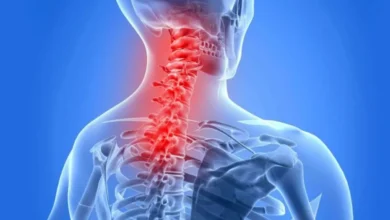Asthma: Types , Causes, Symptoms, Treatment

Asthma is a chronic respiratory disease caused by a combination of genetic and environmental factors, with symptoms including wheezing, shortness of breath, and chest tightness, which can be managed with proper treatment including inhaled medications and lifestyle changes
Types of asthma
1. Allergic asthma:
This type of asthma is triggered by allergens such as pollen, dust mites, animal dander, and mold.
2. Non-allergic asthma:
This type of asthma is not triggered by allergens, but by irritants such as smoke, pollution, and strong odors.
3. Exercise-induced asthma:
This type of asthma is triggered by physical activity, especially in cold, dry air.
4. Occupational asthma:
This type of asthma is caused by exposure to irritants and chemicals at work, such as dust, fumes, and gases.
5. Childhood asthma:
This type of asthma begins in childhood and is usually caused by allergens.
6. Adult-onset asthma:
This type of asthma develops later in life and can be triggered by a variety of factors.
7. Steroid-resistant asthma:
This type of asthma is difficult to treat with steroid medications.
8. Asthma with fixed airflow obstruction:
This type of asthma is characterized by a persistent decrease in lung function, even with treatment.
9. Aspirin-induced asthma:
This type of asthma is triggered by taking aspirin or other non-steroidal anti-inflammatory drugs (NSAIDs).
Causes and triggers of asthma
Asthma is a chronic respiratory disease that causes inflammation and narrowing of the airways, making it difficult to breathe. There are several factors that can cause or trigger asthma symptoms, including:
1. Genetics:
Asthma tends to run in families, suggesting that there may be a genetic component to the disease.
2. Allergens:
Common allergens that can trigger asthma include pollen, dust mites, animal dander, and mold.
3. Irritants:
Airborne irritants such as smoke, pollution, and strong odors can trigger asthma symptoms.
4. Respiratory infections:
Viral or bacterial infections of the respiratory tract can trigger asthma symptoms.
5. Exercise:
Physical activity can trigger asthma symptoms, especially in cold, dry air.
6. Emotional stress:
Stress and anxiety can trigger asthma symptoms in some people.
7. Weather changes:
Cold air, high humidity, and thunderstorms can trigger asthma symptoms in some people.
8. Medications:
Some medications, such as aspirin and non-steroidal anti-inflammatory drugs (NSAIDs), can trigger asthma symptoms in some people.
Symptoms of asthma
Asthma symptoms can vary in severity and can range from mild to life-threatening. Some common symptoms of asthma include:
1. Wheezing:
A whistling sound when breathing, particularly during exhalation.
2. Shortness of breath:
Difficulty breathing, feeling of tightness in the chest.
3. Cough:
Chronic cough, often worse at night or early in the morning.
4. Chest tightness:
A feeling of pressure or tightness in the chest.
5. Rapid breathing:
Breathing that is faster than normal.
6. Fatigue:
Feeling tired or weak due to difficulty breathing.
Treatment options for asthma
Asthma is a chronic condition that can be managed but not cured. Treatment for asthma typically involves a combination of medications and lifestyle modifications. Some common treatment options for asthma include:
1. Inhaled medications:
Inhaled medications, such as bronchodilators and corticosteroids, are the most common treatment for asthma. These medications are delivered directly to the lungs through an inhaler or nebulizer and can help to relieve symptoms, reduce inflammation, and prevent exacerbations.
2. Oral medications:
In some cases, oral medications such as leukotriene modifiers or theophylline may be used to manage asthma symptoms.
3. Allergy shots:
Allergy shots (immunotherapy) can be effective for people with allergic asthma by reducing the body’s sensitivity to allergens.
4. Lifestyle modifications:
Lifestyle modifications such as avoiding triggers, maintaining a healthy weight, and getting regular exercise can help to manage asthma symptoms.
5. Asthma action plan:
An asthma action plan is a written plan that outlines how to manage asthma symptoms and what to do in case of an asthma attack.
6.Emergency medications:
Quick-relief medications, such as albuterol, can be used in case of an asthma attack to quickly open the airways.
If you have any queries related to medical health, consult Subhash Goyal or his team members on this given no +91 99150 72372, +91 99150 99575, +918283060000



